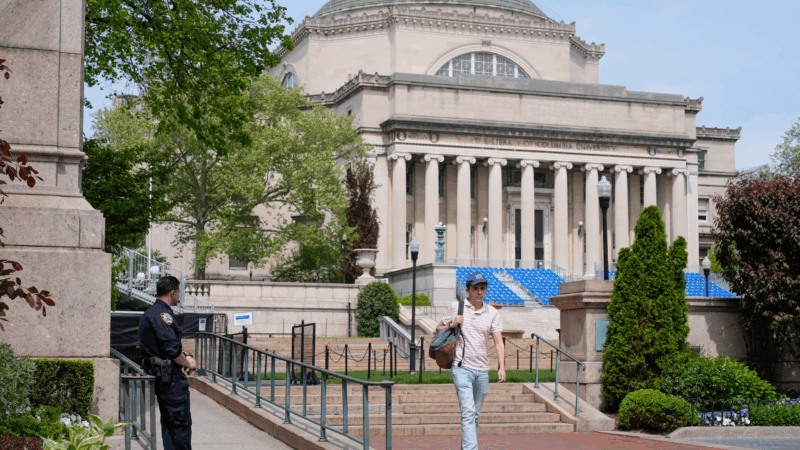Turning Red Line Green: Virtual Conference Brings Attention To Underserved Areas
An organizer of a virtual gathering of bankers, regulators, developers and entrepreneurs acknowledged that redlining has been a deterrent to development in some communities.
But Irvin M. Henderson said Thursday’s event, sponsored by Birmingham community development corporation Urban Impact, was aimed at erasing that practice and creating a more fertile environment to improve communities that had been redlined.
“We know that there are neighborhoods, and Ensley and the downtown historic district are two of them, where there has been redlining,” Henderson said. “What this meeting is about is to work with the regulators and the bankers.”
Henderson is the managing partner of Ensley District Developers, which is redeveloping the Ramsay-McCormick Building in Ensley, and Historic District Developers, which is redeveloping the Masonic Temple in downtown Birmingham. The Henderson, N.C., resident has two partners out of New York and one out of Atlanta.
Redlining is a discriminatory practice by which banks, insurance companies and others refuse or limit loans, mortgages and insurance within specific geographic areas, especially inner-city neighborhoods.
The 2½-hour virtual event drew 100 people to their digital screens. During the proceedings, regulators said they want to place emphasis on underserved areas.
“There is no question that we absolutely want to make sure that previously redlined areas are opened up,” Henderson said. “We certainly have opportunities here that we want to see happen for everyone. We want to make sure that the redlining, previously, is erased. That means that we want to work with the institutions to see the value in these neighborhoods.
“We want to work with the neighborhoods to get the technical assistance to make the difference in these neighborhoods,” Henderson continued. “We want to work with the small business owners to package themselves with the information necessary to get the right audience.”
Ensley businessman Brian K. Rice raised the question of redlining. He said buildings he owns in downtown Ensley were appraised at having no value as they were compared to properties 14 miles away.
Henderson cited panelists Scarlett Duplechain of the Office of the Comptroller of the Currency and David Jackson, a senior adviser with the Federal Reserve Bank of Atlanta, as “interior advocates.”
“They are in the banks trying to make sure that everyone does get a fair shake,” he said. “The banking community has a history of having a problem with redlining. They also have a history of working with their regulators and working with community leaders to solve those problems.
“What we want to do is concentrate on the solutions,” Henderson said. “We know that there’s negativity, we know that there have been problems. But going forward, (we need) collaboration and progress to work together to solve those problems and green-line redevelopment areas. That is absolutely what this is about.”
Regulators and bankers talked about various vehicles that are in place through which developers can get the funds they need to transform their communities.
Duplechain said regulators stand ready to assist with conversations around the Community Reinvestment Act, as well as introducing the financial institutions to those opportunities that might exist.
“We know that our bankers are always ready to engage in improving those communities that they serve,” she said. “A lot of times it’s how they get there that could be different, and sometimes just not knowing or being aware of what those opportunities are. But we started the platform, and I think the conversation has really been good. We look forward to continue working with you guys.”
Rice said Thursday’s event was beneficial.
“The value of the virtual banking meeting that happened today was the regulators,” he said. “They gave local people in communities like Ensley, primarily African Americans who were on a call, understanding of the federal regulatory agencies that oversee banks, and how to utilize them and how to contact them.
“I think that was critical,” Rice said. “They also shared with what commercial development tools are traditionally available.”
Chicagoans pay respects to Jesse Jackson as cross-country memorial services begin
Memorial services for the Rev. Jesse Jackson Sr. to honor his long civil rights legacy begin in Chicago. Events will also take place in Washington, D.C., and South Carolina, where he was born and began his activism.
In reversal, Warner Bros. jilts Netflix for Paramount
Warner Bros. says Paramount's sweetened bid to buy the whole company is "superior" to an $83 billion deal it struck with Netflix for just its streaming services, studios, and intellectual property.
Trump’s ballroom project can continue for now, court says
A US District Judge denied a preservation group's effort to put a pause on construction
NASA lost a lunar spacecraft one day after launch. A new report details what went wrong
Why did a $72 million mission to study water on the moon fail so soon after launch? A new NASA report has the answer.
Columbia student detained by ICE is abruptly released after Mamdani meets with Trump
Hours after the student was taken into custody in her campus apartment, she was released, after New York City Mayor Zohran Mamdani expressed concerns about the arrest to President Trump.
These major issues have brought together Democrats and Republicans in states
Across the country, Republicans and Democrats have found bipartisan agreement on regulating artificial intelligence and data centers. But it's not just big tech aligning the two parties.






